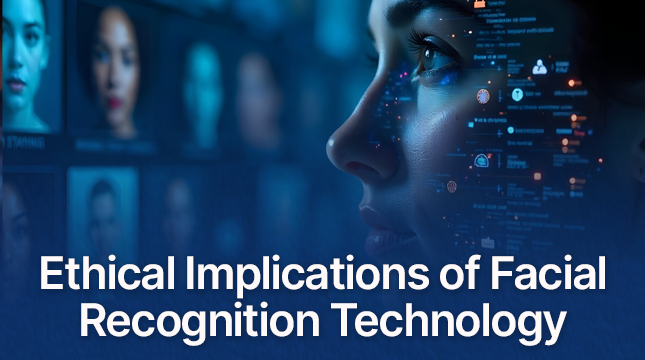This website uses cookies so that we can provide you with the best user experience possible. Cookie information is stored in your browser and performs functions such as recognising you when you return to our website and helping our team to understand which sections of the website you find most interesting and useful.
The Ethical Implications of Facial Recognition Technology

Facial Recognition Technology (FRT) has seen rapid growth and widespread application across industries like law enforcement, retail, and social media. While FRT offers valuable benefits, its use raises important ethical questions and concerns that must be addressed.
Benefits of Facial Recognition Technology
- Enhanced Security: FRT is often used to boost security measures by identifying individuals and spotting potential threats in sensitive locations.
- Improved Customer Experience: In retail, FRT can enhance customer service by personalizing experiences and recommending products based on previous purchases.
- Missing Persons Identification: FRT can be used in the search for missing persons, aiding in identification and reunification efforts.
Ethical Concerns
- Privacy Invasion: FRT can invade individual privacy, as it involves collecting and storing sensitive biometric data, often without the explicit consent of those being recorded.
- Algorithmic Bias: FRT algorithms are sometimes biased, which can result in inaccurate or discriminatory outcomes, particularly for people of color and women.
- Mass Surveillance: The deployment of FRT on a broad scale can lead to mass surveillance, raising concerns about excessive governmental or corporate monitoring of private citizens.
- Misuse Risks: FRT can be misused for harmful purposes, such as stalking, harassment, or discriminatory practices, impacting individual freedom and security.
Balancing Benefits and Ethical Risks
Addressing these ethical concerns requires clear guidelines and responsible usage policies, including:
- Informed Consent: Individuals should be fully informed about FRT usage and offered the choice to opt-out whenever possible.
- Data Privacy Protections: Strong data privacy regulations should be enforced to safeguard sensitive biometric information.
- Bias Reduction: Regular testing and updates to FRT algorithms can help mitigate biases and improve accuracy across diverse populations.
- Transparency and Accountability: Organizations using FRT should operate transparently and be held accountable for potential misuse or abuse of the technology.
Conclusion
Facial Recognition Technology presents clear advantages, but it also brings significant ethical challenges that need thoughtful regulation. By establishing responsible policies and transparency measures, we can leverage FRT’s benefits while safeguarding individual privacy and upholding ethical standards.

Let's Start Your Project
Get free consultation for your digital product idea to turn it into reality!
Get Started






